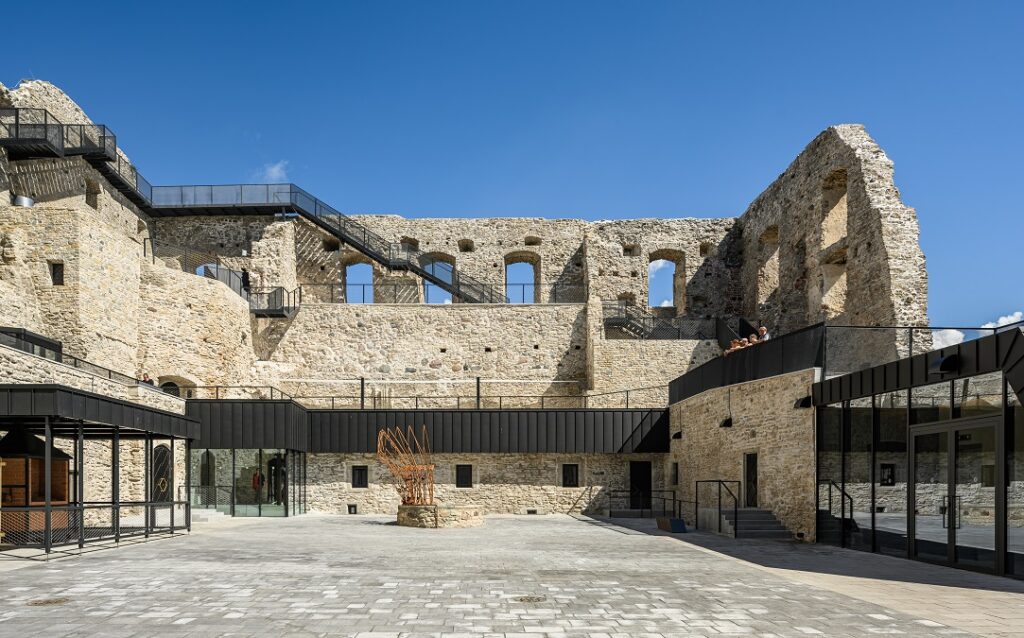The Haapsalu Castle Museum in Haapsalu, Estonia, received a special commendation at the European Museum of the Year Awards 2021.
The special commendations are given to the museums that have developed a new and innovative aspect of their public service and from which other European museums can learn, the European Museum Forum, the organisation behind the awards, said.
“The [Haapsalu Castle] museum is an example of outstanding renovation of a monumental complex. As a museum entity, it demonstrates the potential of cultural heritage to exercise soft power, boosting local economies and human ties around a monumental past,” the forum noted in a statement.
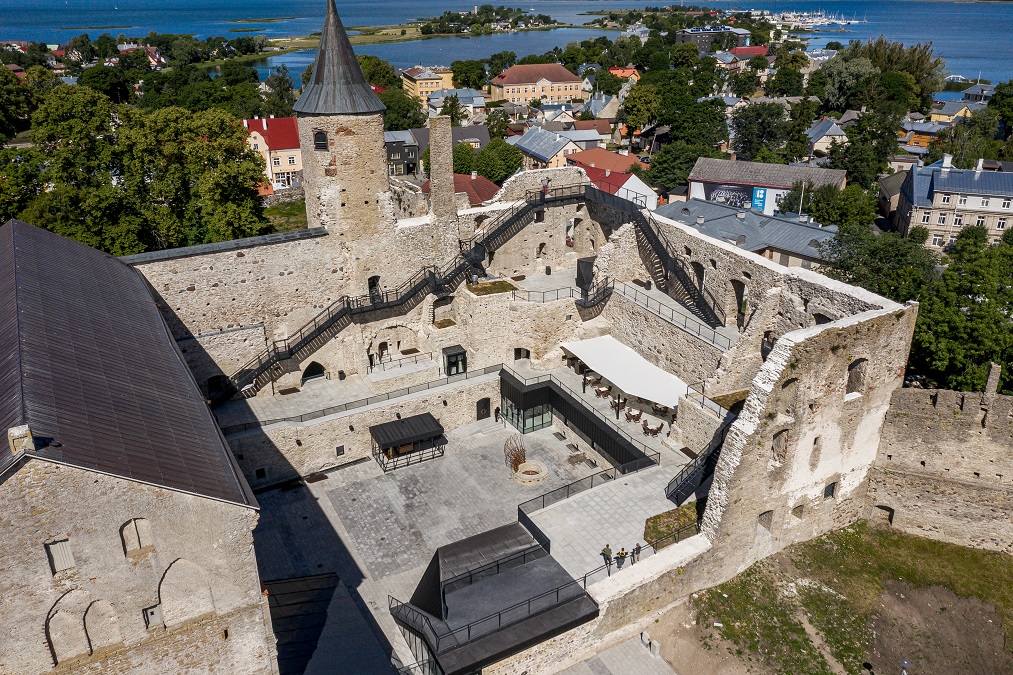
According to Marlen Mouliou, the chair of the jury, the “Haapsalu Castle Museum is a paradigm of excellence in the preservation of a historical monument, in this case an important remnant of medieval Baltic history”.
“It is a model of renovation in the 21st century that combines absolute respect for its historical ‘body’ and its materiality with ingenious modern design that makes the site fully accessible, both physically and intellectually. The small town where the Castle Museum still stands is now a destination, where history and culture can be enjoyed,” she said in a statement.

International experts evaluate
The European Museum of the Year Award is given to renovated museums and recognises a unique atmosphere; contribution to public interest; creative presentation and interpretation of themes; creativity and innovation in education; and social responsibility.
In addition to the title, four sub-category awards are presented and several outstanding museums – such as the Haapsalu Castle Museum in this case – are noted. The museums are nominated by their respective managements, but the application process and the evaluation are long and thorough.
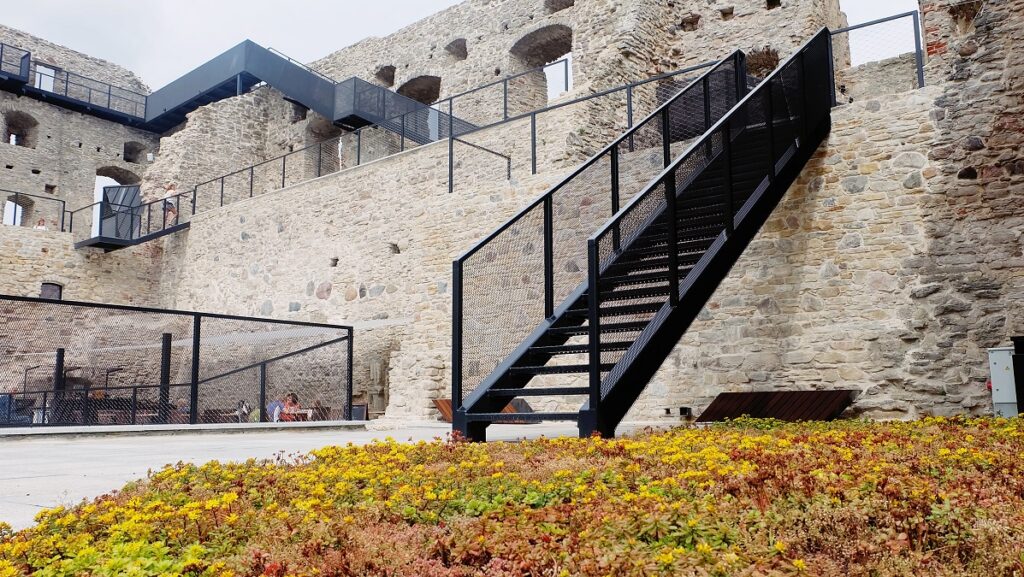
Following the request, two international experts will be sent to the museums. One of the experts makes a public visit and explores the exhibition, interacts with the museum staff and talks to them about the organisation of the renovated museum. The other one, however, pays a visit unannounced – without disclosing the identity on the spot nor afterwards.
The main exhibit is the castle
According to Kaire Tooming, the head of the museum, Haapsalu Castle is an “object-based museum” – the main exhibit is the castle itself.
“When creating the exposition, we proceeded from the fact that it is not so much an independent exhibition, but rather providing background – it explains the construction of the castle and the story from the Middle Ages to the end of the 17th century,” Tooming told Estonian World.
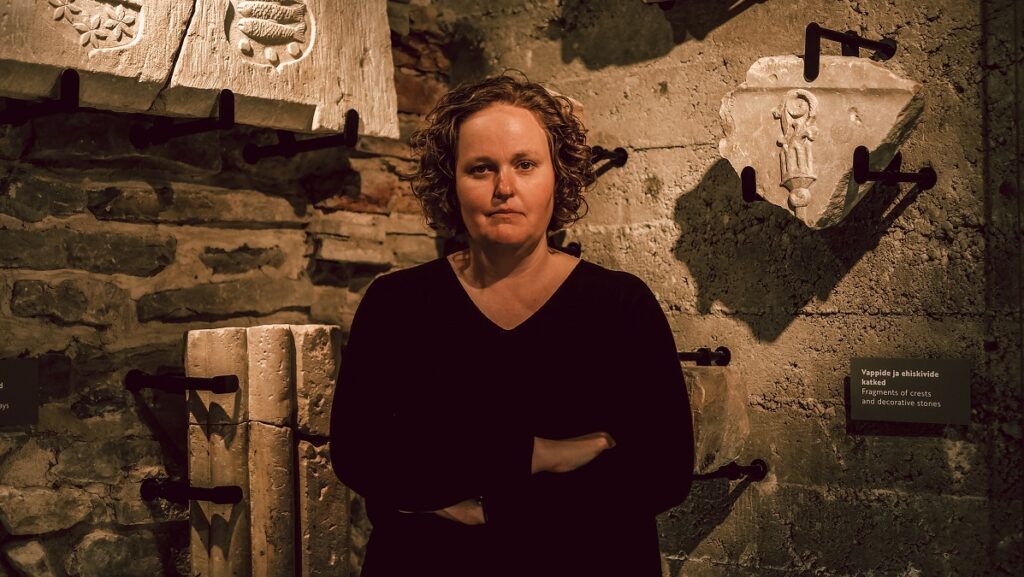
“Therefore, the exhibition is minimalist, where instead of the usual large display cases and opaque billboards, we have chosen solutions that are less disruptive of the castle’s space – the wall texts are displayed on glass and exhibits are distributed between rooms. Instead of IT-based attractions, the castle has so-called analogue solutions – map observation boxes and copies of original objects that can be touched by visitors, for example,” Tooming said.
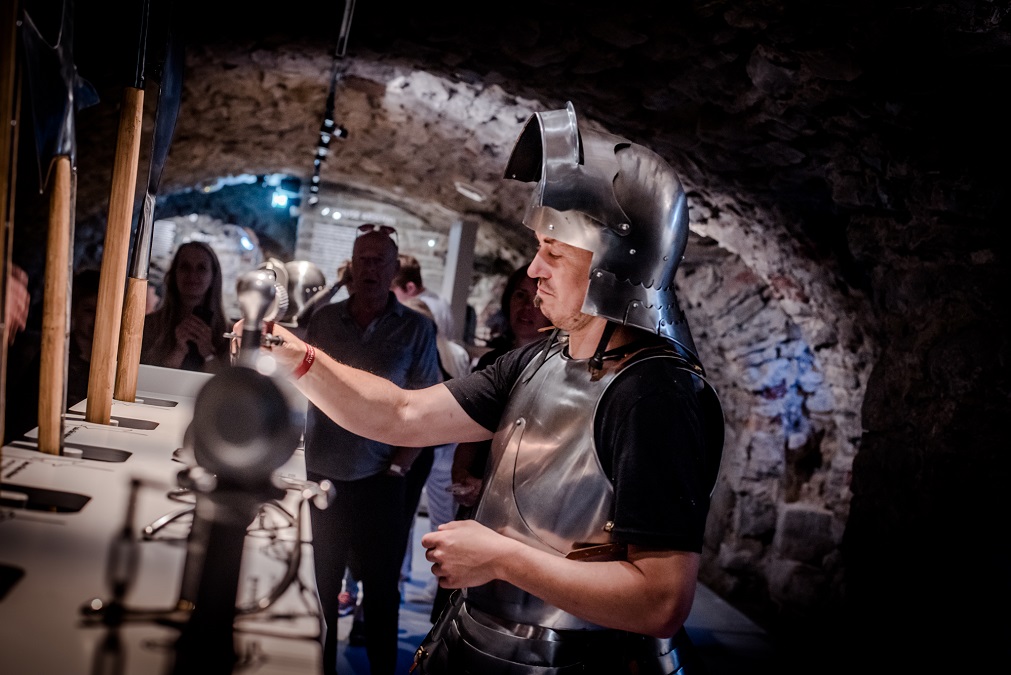
“We offer visitors architecture. It combines a representative building from the mid-13th century, a Swedish military castle garrison, a modern stone quarry, a tsarist ruin complex, a Soviet-era desire to build copy buildings – and modern good architecture. We show all this in the castle,” she noted.
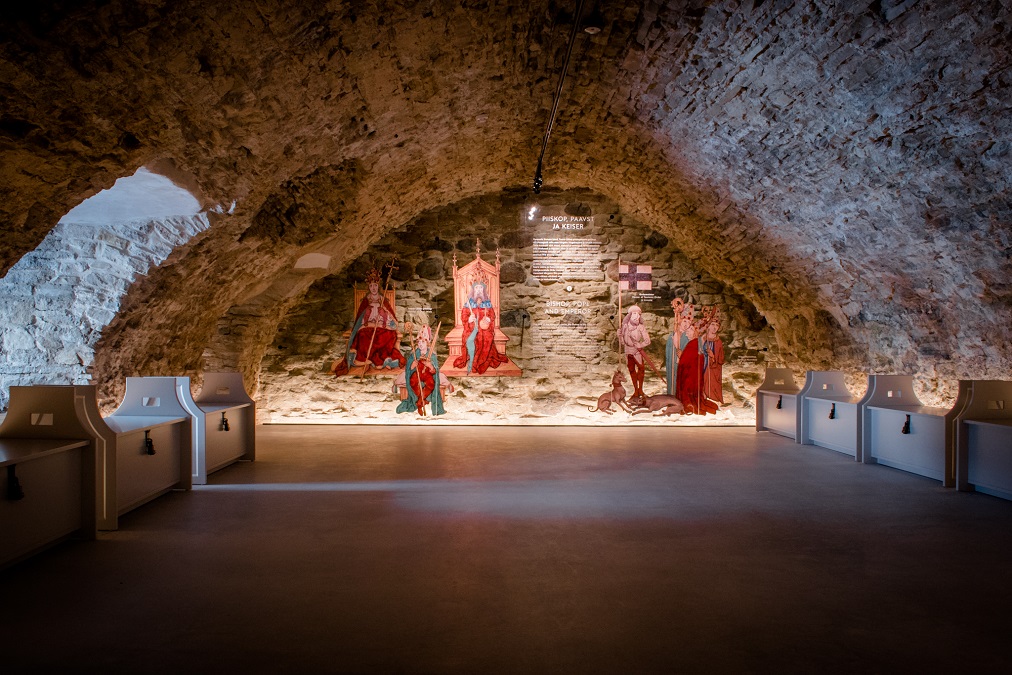
The author of the modern solution is KAOS Architects – an Estonian studio that has also been nominated for the European Union’s Mies van der Rohe Award 2022 for their work at Haapsalu Castle. The award celebrates excellence in architectural works built across Europe.
More foreign tourists visit Haapsalu
The ongoing COVID-19 crisis also affected Haapsalu – the museum was closed for four months due to the pandemic. But Tooming is optimistic about the summer and the museum is planning to further improve the visitor experience.
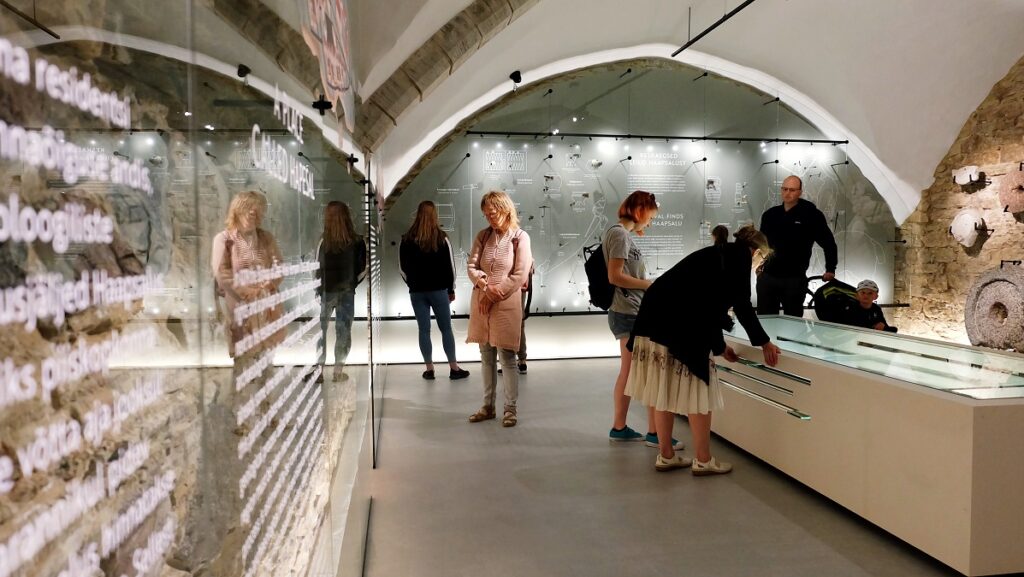
“Last summer showed that the big outbreak in domestic tourism positively also reached to Haapsalu – despite the poor start of the year, 40,000 visitors still visited the castle by the end of 2020. I hope visitors will find us again this year,” Tooming said.
“Our recent activities have been towards the further development of the visitor experience. By the beginning of the summer season, we will have a web-based museum guide that visitors can use on their smart device – the language selection includes 12 languages in both text and audio.”

Tooming added that Haapsalu – a quiet seaside town of approximately 10,000 residents, about an hour’s drive from Tallinn – is increasingly a place for foreign tourists to visit.
“In the years before the pandemic, about half of the visitors to the fortress were foreigners. The foreign tourist here has perhaps a different profile than those found in larger cities. For example, there are many nature tourists – bird watching is extremely popular around here – as well as family tourists,” she asserted.
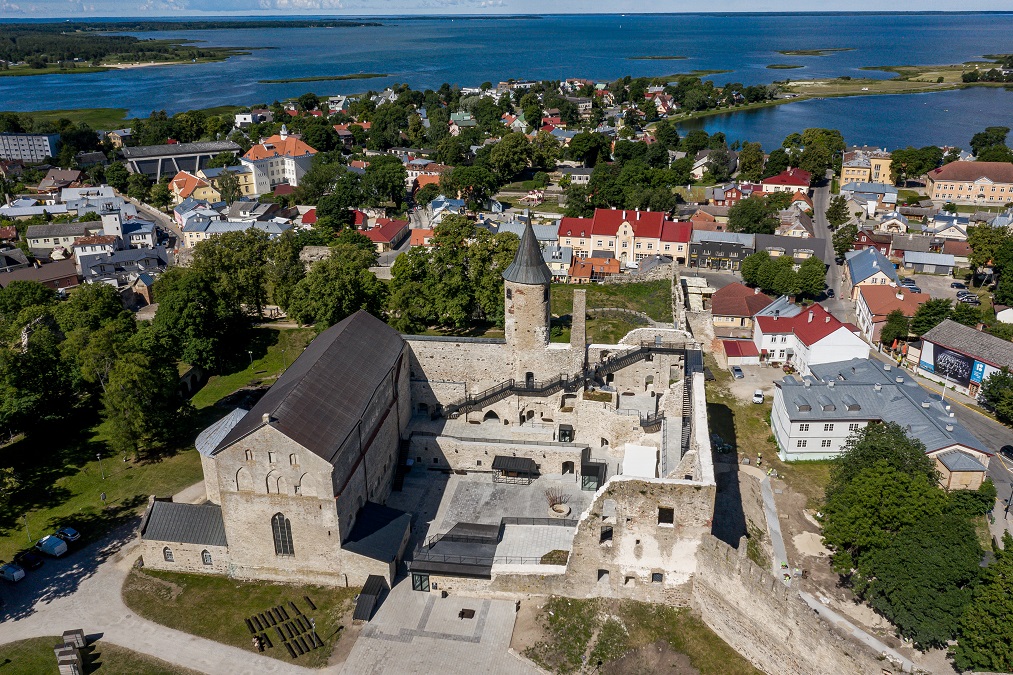
The European Museum Forum has been awarding the title of European Museum of the Year since 1977. The winner of the main award in 2021 is Naturalis Biodiversity Centre in Leiden, the Netherlands. Only one museum in Estonia has also won the main award in the past – the Kumu Art Museum in 2008.
Cover: Haapsalu Castle Museum from the air. Photo by Tõnu Tunnel.

